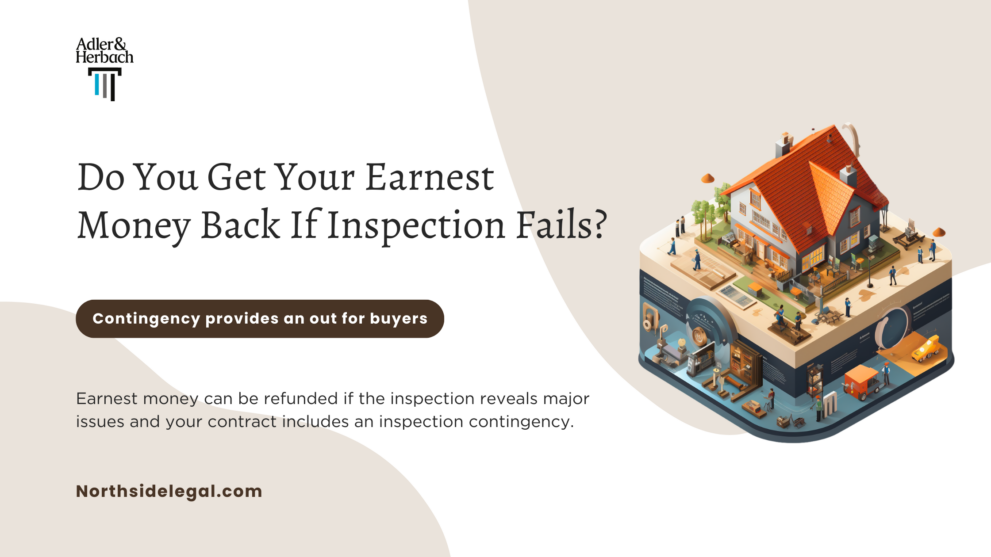Putting down earnest money is standard when making an offer on a home. This deposit demonstrates to the seller that you are serious about purchasing the property. But what happens to the earnest money deposit if the inspection uncovers issues with the home? Can you get your earnest money back if you decide to walk away? Let’s take a look.
Do You Get Your Earnest Money Back If Inspection Fails?
While a home inspection doesn’t really pass or fail, you can get your earnest money back post-inspection, if the purchase agreement has an inspection contingency. The contingency provides an “out” for the buyer if the property condition is not acceptable to you. However, if there is no inspection contingency or you signed an “as-is” purchase contract, getting the earnest money back is not guaranteed. The buyer would have to prove the seller misrepresented the condition of the home, or have another basis for termination, in order for the earnest money to be returned.

What is Earnest Money?
Earnest money, also called a good faith deposit, is a sum of money buyers put down when submitting an offer on a home. It shows the seller you are serious about following through with the purchase. The deposit is usually 1-5% of the purchase price.
This money is held in escrow by a Realtor, title company or attorney during the transaction period. If the deal closes, it goes towards your down payment and closing costs. If the offer falls through, the earnest money is either returned to you or released to the seller depending on the circumstances.
Why Home Inspections Matter?
Home inspections allow buyers to thoroughly examine the property and identify any repairs needed. Inspectors look at the structural soundness, function of systems, appliances, outlets, and more. It’s the buyer’s opportunity to uncover deal-breaking defects before closing.
If the inspection reveals expensive repairs, buyers can use that information to negotiate with the seller. Sometimes sellers will agree to lower the price or make some repairs. If not, the buyer has the right to walk away.
Tips for Protecting Your Earnest Money
- Make sure your offer includes an inspection contingency that allows you to cancel the contract if the inspection is unsatisfactory.
- Do not waive the inspection contingency unless you are comfortable buying the home as-is.
- Thoroughly read through the purchase agreement before signing. Understand the conditions for the return of earnest money.
- Move quickly if you decide to terminate the contract. Provide prompt written notice to the seller within the timeline defined in the agreement.
- Be prepared to explain why the inspection results are grounds to cancel the contract.
- Consult a real estate attorney if there is a dispute over the earnest money. They can provide guidance on the next steps.
Learn more about
The Bottom Line
Getting your earnest money deposit back after an inspection comes down to the terms in the purchase agreement. If you have an inspection contingency, you should be able to cancel and receive your earnest money as long as you act in accordance with the contract terms.
An attorney can help interpret the agreement if things get contentious. Do your due diligence upfront before submitting an offer to avoid earnest money disputes down the road.


